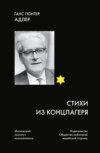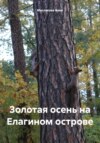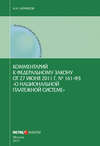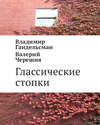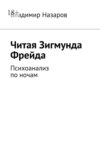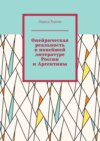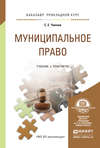Loe raamatut: «Autobiography: Truth and Fiction Relating to My Life»
INTRODUCTION
BY THOMAS CARLYLE
It would appear that for inquirers into Foreign Literature, for all men anxious to see and understand the European world as it lies around them, a great problem is presented in this Goethe; a singular, highly significant phenomenon, and now also means more or less complete for ascertaining its significance. A man of wonderful, nay, unexampled reputation and intellectual influence among forty millions of reflective, serious and cultivated men, invites us to study him; and to determine for ourselves, whether and how far such influence has been salutary, such reputation merited. That this call will one day be answered, that Goethe will be seen and judged of in his real character among us, appears certain enough. His name, long familiar everywhere, has now awakened the attention of critics in all European countries to his works: he is studied wherever true study exists: eagerly studied even in France; nay, some considerable knowledge of his nature and spiritual importance seems already to prevail there.1
For ourselves, meanwhile, in giving all due weight to so curious an exhibition of opinion, it is doubtless our part, at the same time, to beware that we do not give it too much. This universal sentiment of admiration is wonderful, is interesting enough; but it must not lead us astray. We English stand as yet without the sphere of it; neither will we plunge blindly in, but enter considerately, or, if we see good, keep aloof from it altogether. Fame, we may understand, is no sure test of merit, but only a probability of such; it is an accident, not a property, of a man; like light, it can give little or nothing, but at most may show what is given; often it is but a false glare, dazzling the eyes of the vulgar, lending by casual extrinsic splendour the brightness and manifold glance of the diamond to pebbles of no value. A man is in all cases simply the man, of the same intrinsic worth and weakness, whether his worth and weakness lie hidden in the depths of his own consciousness, or be betrumpeted and beshouted from end to end of the habitable globe. These are plain truths, which no one should lose sight of; though, whether in love or in anger, for praise or for condemnation, most of us are too apt to forget them. But least of all can it become the critic to 'follow a multitude to do evil' even when that evil is excess of admiration; on the contrary, it will behoove him to lift up his voice, how feeble soever, how unheeded soever, against the common delusion; from which, if he can save, or help to save any mortal, his endeavours will have been repaid.
With these things in some measure before us, we must remind our readers of another influence at work in this affair, and one acting, as we think, in the contrary direction. That pitiful enough desire for 'originality' which lurks and acts in all minds, will rather, we imagine, lead the critic of Foreign Literature to adopt the negative than the affirmative with regard to Goethe. If a writer indeed feel that he is writing for England alone, invisibly and inaudibly to the rest of the Earth, the temptations may be pretty equally balanced; if he write for some small conclave, which he mistakenly thinks the representative of England, they may sway this way or that, as it chances. But writing in such isolated spirit is no longer possible. Traffic, with its swift ships, is uniting all nations into one; Europe at large is becoming more and more one public; and in this public, the voices for Goethe, compared with those against him, are in the proportion, as we reckon them, both as to the number and value, of perhaps a hundred to one. We take in, not Germany alone, but France and Italy; not the Schlegels and Schellings, but the Manzonis and De Staels. The bias of originality, therefore, may lie to the side of censure; and whoever among us shall step forward, with such knowledge as our common critics have of Goethe, to enlighten the European public, by contradiction in this matter, displays a heroism, which, in estimating his other merits, ought nowise to be forgotten.
Our own view of the case coincides, we confess, in some degree with that of the majority. We reckon that Goethe's fame has, to a considerable extent, been deserved; that his influence has been of high benefit to his own country; nay more, that it promises to be of benefit to us, and to all other nations. The essential grounds of this opinion, which to explain minutely were a long, indeed boundless task, we may state without many words. We find, then, in Goethe, an Artist, in the high and ancient meaning of that term; in the meaning which it may have borne long ago among the masters of Italian painting, and the fathers of Poetry in England; we say that we trace in the creations of this man, belonging in every sense to our own time, some touches of that old, divine spirit, which had long passed away from among us, nay which, as has often been laboriously demonstrated, was not to return to this world any more.
Or perhaps we come nearer our meaning, if we say that in Goethe we discover by far the most striking instance, in our time, of a writer who is, in strict speech, what Philosophy can call a Man. He is neither noble nor plebeian, neither liberal nor servile, nor infidel nor devotee; but the best excellence of all these, joined in pure union; 'a clear and universal Man.' Goethe's poetry is no separate faculty, no mental handicraft; but the voice of the whole harmonious manhood: nay it is the very harmony, the living and life-giving harmony of that rich manhood which forms his poetry. All good men may be called poets in act, or in word; all good poets are so in both. But Goethe besides appears to us as a person of that deep endowment, and gifted vision, of that experience also and sympathy in the ways of all men, which qualify him to stand forth, not only as the literary ornament, but in many respects too as the Teacher and exemplar of his age. For, to say nothing of his natural gifts, he has cultivated himself and his art, he has studied how to live and to write, with a fidelity, an unwearied earnestness, of which there is no other living instance; of which, among British poets especially, Wordsworth alone offers any resemblance. And this in our view is the result. To our minds, in these soft, melodious imaginations of his, there is embodied the Wisdom which is proper to this time; the beautiful, the religious Wisdom, which may still, with something of its old impressiveness, speak to the whole soul; still, in these hard, unbelieving utilitarian days, reveal to us glimpses of the Unseen but not unreal World, that so the Actual and the Ideal may again meet together, and clear Knowledge be again wedded to Religion, in the life and business of men.
Such is our conviction or persuasion with regard to the poetry of Goethe. Could we demonstrate this opinion to be true, could we even exhibit it with that degree of clearness and consistency which it has attained in our own thoughts, Goethe were, on our part, sufficiently recommended to the best attention of all thinking men. But, unhappily, it is not a subject susceptible of demonstration: the merits and characteristics of a Poet are not to be set forth by logic; but to be gathered by personal, and as in this case it must be, by deep and careful inspection of his works. Nay Goethe's world is everyway so different from ours; it costs us such effort, we have so much to remember, and so much to forget, before we can transfer ourselves in any measure into his peculiar point of vision, that a right study of him, for an Englishman, even of ingenuous, open, inquisitive mind, becomes unusually difficult; for a fixed, decided, contemptuous Englishman, next to impossible. To a reader of the first class, helps may be given, explanations will remove many a difficulty; beauties that lay hidden may be made apparent; and directions, adapted to his actual position, will at length guide him into the proper tract for such an inquiry. All this, however, must be a work of progression and detail. To do our part in it, from time to time, must rank among the best duties of an English Foreign Review. Meanwhile, our present endeavour limits itself within far narrower bounds. We cannot aim to make Goethe known, but only to prove that he is worthy of being known; at most, to point out, as it were afar off, the path by which some knowledge of him may be obtained. A slight glance at his general literary character and procedure, and one or two of his chief productions which throw light on these, must for the present suffice. A French diplomatic personage, contemplating Goethe's physiognomy, is said to have observed: /Voila un homme qui a eu beaucoup de chagrins./ A truer version of the matter, Goethe himself seems to think, would have been: Here is a man who has struggled toughly; who has /es sich recht sauer werden lassen./ Goethe's life, whether as a writer and thinker, or as a living active man, has indeed been a life of effort, of earnest toilsome endeavour after all excellence. Accordingly, his intellectual progress, his spiritual and moral history, as it may be gathered from his successive Works, furnishes, with us, no small portion of the pleasure and profit we derive from perusing them. Participating deeply in all the influences of his age, he has from the first, at every new epoch, stood forth to elucidate the new circumstances of the time; to offer the instruction, the solace, which that time required. His literary life divides itself into two portions widely different in character: the products of the first, once so new and original, have long either directly or through the thousand thousand imitations of them, been familiar to us; with the products of the second, equally original, and in our day far more precious, we are yet little acquainted. These two classes of works stand curiously related with each other; at first view, in strong contradiction, yet, in truth, connected together by the strictest sequence. For Goethe has not only suffered and mourned in bitter agony under the spiritual perplexities of his time; but he has also mastered these, he is above them, and has shown others how to rise above them. At one time, we found him in darkness, and now he is in light; he was once an Unbeliever, and now he is a Believer; and he believes, moreover, not by denying his unbelief, but by following it out; not by stopping short, still less turning back, in his inquiries, but by resolutely prosecuting them. This, it appears to us, is a case of singular interest, and rarely exemplified, if at all elsewhere, in these our days. How has this man, to whom the world once offered nothing but blackness, denial and despair, attained to that better vision which now shows it to him, not tolerable only, but full of solemnity and loveliness? How has the belief of a Saint been united in this high and true mind with the clearness of a Sceptic; the devout spirit of a Fenelon made to blend in soft harmony with the gaiety, the sarcasm, the shrewdness of a Voltaire?
Goethe's two earliest works are /Götz von Berlichingen/ and the /Sorrows of Werter/. The boundless influence and popularity they gained, both at home and abroad, is well known. It was they that established almost at once his literary fame in his own country; and even determined his subsequent private history, for they brought him into contact with the Duke of Weimar; in connection with whom, the Poet, engaged in manifold duties, political as well as literary, has lived for fifty-four years. Their effects over Europe at large were not less striking than in Germany.
'It would be difficult,' observes a writer on this subject, 'to name two books which have exercised a deeper influence on the subsequent literature of Europe, than these two performances of a young author; his first-fruits, the produce of his twenty-fourth year. /Werter/ appeared to seize the hearts of men in all quarters of the world, and to utter for them the word which they had long been waiting to hear. As usually happens, too, this same word, once uttered, was soon abundantly repeated; spoken in all dialects, and chaunted through all notes of the gamut, till the sound of it had grown a weariness rather than a pleasure. Sceptical sentimentality, view-hunting, love, friendship, suicide, and desperation, became the staple of literary ware; and though the epidemic, after a long course of years, subsided in Germany, it reappeared with various modifications in other countries, and everywhere abundant traces of its good and bad effects are still to be discerned. The fortune of /Berlichingen with the Iron Hand,/ though less sudden, was by no means less exalted. In his own county, /Götz,/ though he now stands solitary and childless, became the parent of an innumerable progeny of chivalry plays, feudal delineations, and poetico- antiquarian performances; which, though long ago deceased, made noise enough in their day and generation: and with ourselves, his influence has been perhaps still more remarkable. Sir Walter Scott's first literary enterprise was a translation of /Götz von Berlichingen/; and, if genius could be communicated like instruction, we might call this work of Goethe's the prime cause of /Marmion/ and the /Lady of the Lake/, with all that has followed from the same creative hand. Truly, a grain of seed that has lighted on the right soil! For if not firmer and fairer, it has grown to be taller and broader than any other tree; and all the nations of the earth are still yearly gathering of its fruit.
'But overlooking these spiritual genealogies, which bring little certainty and little profit, it may be sufficient to observe of /Berlichingen/ and /Werter/, that they stand prominent among the causes, or, at the very least, among the signals of a great change in modern literature. The former directed men's attention with a new force to the picturesque effects of the Past; and the latter, for the first time, attempted the more accurate delineation of a class of feelings deeply important to modern minds, but for which our elder poetry offered no exponent, and perhaps could offer none, because they are feelings that arise from Passion incapable of being converted into Action, and belong chiefly to an age as indolent, cultivated and unbelieving as our own. This, notwithstanding the dash of falsehood which may exist in /Werter/ itself, and the boundless delirium of extravagance which it called forth in others, is a high praise which cannot justly be denied it.'
To the same dark wayward mood, which, in /Werter/, pours itself forth in bitter wailings over human life; and, in /Berlichingen/, appears as a fond and sad looking back into the Past, belong various other productions of Goethe's; for example, the /Mitschuldigen/, and the first idea of Faust, which, however, was not realized in actual composition till a calmer period of his history. Of this early harsh and crude, yet fervid and genial period, /Werter/ may stand here as the representative; and, viewed in its external and internal relation, will help to illustrate both the writer and the public he was writing for.
At the present day, it would be difficult for us, satisfied, nay sated to nausea, as we have been with the doctrines of Sentimentality, to estimate the boundless interest which /Werter/ must have excited when first given to the world. It was then new in all senses; it was wonderful, yet wished for, both in its own country and in every other. The Literature of Germany had as yet but partially awakened from its long torpor: deep learning, deep reflection, have at no time been wanting there; but the creative spirit had for above a century been almost extinct. Of late, however, the Ramlers, Rabeners, Gellerts, had attained to no inconsiderable polish of style; Klopstock's /Messias/ had called forth the admiration, and perhaps still more the pride, of the country, as a piece of art; a high enthusiasm was abroad; Lessing had roused the minds of men to a deeper and truer interest in Literature, had even decidedly begun to introduce a heartier, warmer and more expressive style. The Germans were on the alert; in expectation, or at least in full readiness for some far bolder impulse; waiting for the Poet that might speak to them from the heart to the heart. It was in Goethe that such a Poet was to be given them.
Nay, the Literature of other countries, placid, self-satisfied as they might seem, was in an equally expectant condition. Everywhere, as in Germany, there was polish and languor, external glitter and internal vacuity; it was not fire, but a picture of fire, at which no soul could be warmed. Literature had sunk from its former vocation: it no longer held the mirror up to Nature; no longer reflected, in many-coloured expressive symbols, the actual passions, the hopes, sorrows, joys of living men; but dwelt in a remote conventional world in /Castles of Otranto/, in /Epigoniads/ and /Leonidases/, among clear, metallic heroes, and white, high, stainless beauties, in whom the drapery and elocution were nowise the least important qualities. Men thought it right that the heart should swell into magnanimity with Caractacus and Cato, and melt into sorrow with many an Eliza and Adelaide; but the heart was in no haste either to swell or to melt. Some pulses of heroical sentiment, a few /un/natural tears might, with conscientious readers, be actually squeezed forth on such occasions: but they came only from the surface of the mind; nay, had the conscientious man considered the matter, he would have found that they ought not to have come at all. Our only English poet of the period was Goldsmith; a pure, clear, genuine spirit, had he been of depth or strength sufficient; his /Vicar of Wakefield/ remains the best of all modern Idyls; but it is and was nothing more. And consider our leading writers; consider the poetry of Gray, and the prose of Johnson. The first a laborious mosaic, through the hard stiff lineaments of which little life or true grace could be expected to look: real feeling, and all freedom of expressing it, are sacrificed to pomp, to cold splendour; for vigour we have a certain mouthing vehemence, too elegant indeed to be tumid, yet essentially foreign to the heart, and seen to extend no deeper than the mere voice and gestures. Were it not for his /Letters/, which are full of warm exuberant power, we might almost doubt whether Gray was a man of genius; nay, was a living man at all, and not rather some thousand-times more cunningly devised poetical turning-loom, than that of Swift's Philosophers in Laputa. Johnson's prose is true, indeed, and sound, and full of practical sense: few men have seen more clearly into the motives, the interests, the whole walk and conversation of the living busy world as it lay before him; but farther than this busy, and to most of us, rather prosaic world, he seldom looked: his instruction is for men of business, and in regard to matters of business alone. Prudence is the highest Virtue he can inculcate; and for that finer portion of our nature, that portion of it which belongs essentially to Literature strictly so called, where our highest feelings, our best joys and keenest sorrows, our Doubt, our Love, our Religion reside, he has no word to utter; no remedy, no counsel to give us in our straits; or at most, if, like poor Boswell, the patient is importunate, will answer: "My dear Sir, endeavour to clear your mind of Cant."
The turn which Philosophical speculation had taken in the preceding age corresponded with this tendency, and enhanced its narcotic influences; or was, indeed, properly speaking, the loot they had sprung from. Locke, himself a clear, humble-minded, patient, reverent, nay religious man, had paved the way for banishing religion from the world. Mind, by being modelled in men's imaginations into a Shape, a Visibility; and reasoned of as if it had been some composite, divisible and reunitable substance, some finer chemical salt, or curious piece of logical joinery, – began to lose its immaterial, mysterious, divine though invisible character: it was tacitly figured as something that might, were our organs fine enough, be /seen/. Yet who had ever seen it? Who could ever see it? Thus by degrees it passed into a Doubt, a Relation, some faint Possibility; and at last into a highly-probable Nonentity. Following Locke's footsteps, the French had discovered that 'as the stomach secretes Chyle, so does the brain secrete Thought.' And what then was Religion, what was Poetry, what was all high and heroic feeling? Chiefly a delusion; often a false and pernicious one. Poetry, indeed, was still to be preserved; because Poetry was a useful thing: men needed amusement, and loved to amuse themselves with Poetry: the playhouse was a pretty lounge of an evening; then there were so many precepts, satirical, didactic, so much more impressive for the rhyme; to say nothing of your occasional verses, birthday odes, epithalamiums, epicediums, by which 'the dream of existence may be so highly sweetened and embellished.' Nay, does not Poetry, acting on the imaginations of men, excite them to daring purposes; sometimes, as in the case of Tyrtaeus, to fight better; in which wise may it not rank as a useful stimulant to man, along with Opium and Scotch Whisky, the manufacture of which is allowed by law? In Heaven's name, then, let Poetry be preserved.
With Religion, however, it fared somewhat worse. In the eyes of Voltaire and his disciples, Religion was a superfluity, indeed a nuisance. Here, it is true, his followers have since found that he went too far; that Religion, being a great sanction to civil morality, is of use for keeping society in order, at least the lower classes, who have not the feeling of Honour in due force; and therefore, as a considerable help to the Constable and Hangman, /ought/ decidedly to be kept up. But such toleration is the fruit only of later days. In those times, there was no question but how to get rid of it, root and branch, the sooner the better. A gleam of zeal, nay we will call it, however basely alloyed, a glow of real enthusiasm and love of truth, may have animated the minds of these men, as they looked abroad on the pestilent jungle of Superstition, and hoped to clear the earth of it forever. This little glow, so alloyed, so contaminated with pride and other poor or bad admixtures, was the last which thinking men were to experience in Europe for a time. So it is always in regard to Religious Belief, how degraded and defaced soever: the delight of the Destroyer and Denier is no pure delight, and must soon pass away. With bold, with skilful hand, Voltaire set his torch to the jungle: it blazed aloft to heaven; and the flame exhilarated and comforted the incendiaries; but, unhappily, such comfort could not continue. Ere long this flame, with its cheerful light and heat, was gone: the jungle, it is true, had been consumed; but, with its entanglements, its shelter and its spots of verdure also; and the black, chill, ashy swamp, left in its stead, seemed for a time a greater evil than the other.
In such a state of painful obstruction, extending itself everywhere over Europe, and already master of Germany, lay the general mind, when Goethe first appeared in Literature. Whatever belonged to the finer nature of man had withered under the Harmattan breath of Doubt, or passed away in the conflagration of open Infidelity; and now, where the Tree of Life once bloomed and brought fruit of goodliest savour there was only barrenness and desolation. To such as could find sufficient interest in the day-labour and day-wages of earthly existence; in the resources of the five bodily Senses, and of Vanity, the only mental sense which yet flourished, which flourished indeed with gigantic vigour, matters were still not so bad. Such men helped themselves forward, as they will generally do; and found the world, if not an altogether proper sphere (for every man, disguise it as he may, has a /soul/ in him), at least a tolerable enough place; where, by one item or another, some comfort, or show of comfort, might from time to time be got up, and these few years, especially since they were so few, be spent without much murdering. But to men afflicted with the 'malady of Thought,' some devoutness of temper was an inevitable heritage; to such the noisy forum of the world could appear but an empty, altogether insufficient concern; and the whole scene of life had become hopeless enough. Unhappily, such feelings are yet by no means so infrequent with ourselves, that we need stop here to depict them. That state of Unbelief from which the Germans do seem to be in some measure delivered, still presses with incubus force on the greater part of Europe; and nation after nation, each in its own way, feels that the first of all moral problems is how to cast it off, or how to rise above it. Governments naturally attempt the first expedient; Philosophers, in general, the second.
The Poet, says Schiller, is a citizen not only of his country, but of his time. Whatever occupies and interests men in general, will interest him still more. That nameless Unrest, the blind struggle of a soul in bondage, that high, sad, longing Discontent, which was agitating every bosom, had driven Goethe almost to despair. All felt it; he alone could give it voice. And here lies the secret of his popularity; in his deep, susceptive heart, he felt a thousand times more keenly what every one was feeling; with the creative gift which belonged to him as a poet, he bodied it forth into visible shape, gave it a local habitation and a name; and so made himself the spokesman of his generation. /Werter/ is but the cry of that dim, rooted pain, under which all thoughtful men of a certain age were languishing: it paints the misery, it passionately utters the complaint; and heart and voice, all over Europe, loudly and at once respond to it. True, it prescribes no remedy; for that was a far different, far harder enterprise, to which other years and a higher culture were required; but even this utterance of the pain, even this little, for the present, is ardently grasped at, and with eager sympathy appropriated in every bosom. If Byron's life-weariness, his moody melancholy, and mad stormful indignation, borne on the tones of a wild and quite artless melody, could pierce so deep into many a British heart, now that the whole matter is no longer new, – is indeed old and trite, – we may judge with what vehement acceptance this /Werter/ must have been welcomed, coming as it did like a voice from unknown regions; the first thrilling peal of that impassioned dirge, which, in country after country, men's ears have listened to, till they were deaf to all else. For /Werter/ infusing itself into the core and whole spirit of Literature, gave birth to a race of Sentimentalists, who have raged and wailed in every part of the world, till better light dawned on them, or at worst, exhausted Nature laid herself to sleep, and it was discovered that lamenting was an unproductive labour. These funereal choristers, in Germany a loud, haggard, tumultuous, as well as tearful class, were named the /Kraftmänner/ or Power-men; but have all long since, like sick children, cried themselves to rest. Byron was our English Sentimentalist and Power-man; the strongest of his kind in Europe; the wildest, the gloomiest, and it may be hoped the last. For what good is it to 'whine, put finger i' the eye, and sob,' in such a case? Still more, to snarl and snap in malignant wise, 'like dog distract, or monkey sick?' Why should we quarrel with our existence, here as it lies before us, our field and inheritance, to make or mar, for better or for worse; in which, too, so many noblest men have, even from the beginning, warring with the very evils we war with, both made and been what will be venerated to all time?
A wide and everyway most important interval divides /Werter/, with its sceptical philosophy and 'hypochondriacal crotchets,' from Goethe's next Novel, /Wilhelm Meister's Apprenticeship/, published some twenty years afterwards. This work belongs, in all senses, to the second and sounder period of Goethe's life, and may indeed serve as the fullest, if perhaps not the purest, impress of it; being written with due forethought, at various times, during a period of no less than ten years. Considered as a piece of Art, there were much to be said on /Meister/; all which, however, lies beyond our present purpose. We are here looking at the work chiefly as a document for the writer's history; and in this point of view, it certainly seems, as contrasted with its more popular precursor, to deserve our best attention: for the problem which had been stated in /Werter/, with despair of its solution, is here solved. The lofty enthusiasm, which, wandering wildly over the universe, found no resting-place, has here reached its appointed home; and lives in harmony with what long appeared to threaten it with annihilation. Anarchy has now become Peace; the once gloomy and perturbed spirit is now serene, cheerfully vigorous, and rich in good fruits. Neither, which is most important of all, has this Peace been attained by a surrender to Necessity, or any compact with Delusion; a seeming blessing, such as years and dispiritment will of themselves bring to most men, and which is indeed no blessing, since even continued battle is better than destruction or captivity; and peace of this sort is like that of Galgacus's Romans, who 'called it peace when they had made a desert.' Here the ardent high-aspiring youth has grown into the calmest man, yet with increase and not loss of ardour, and with aspirations higher as well as clearer. For he has conquered his unbelief; the Ideal has been built on the Actual; no longer floats vaguely in darkness and regions of dreams, but rests in light, on the firm ground of human interest and business, as in its true scene, on its true basis.

